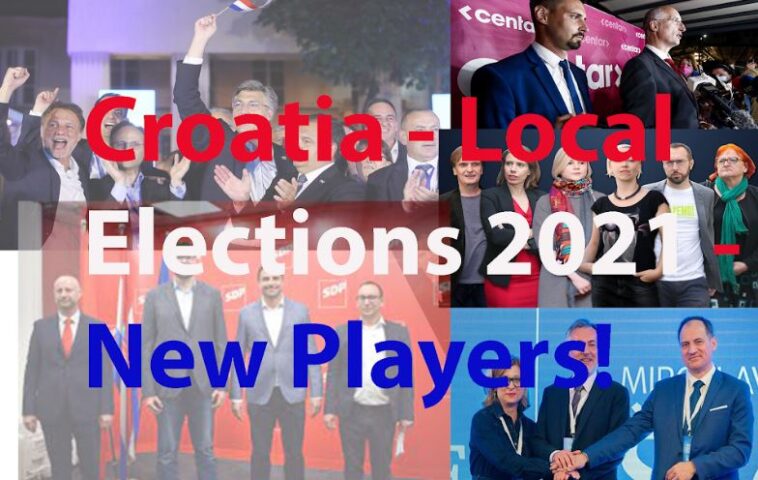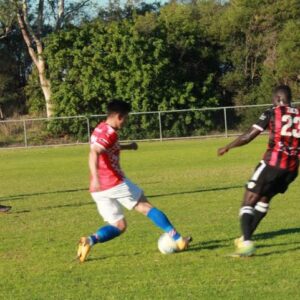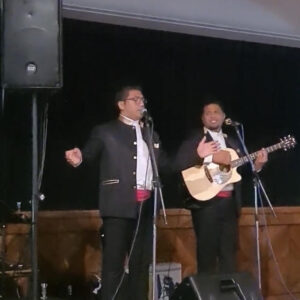Apart from a small town or two in Croatia (for example Kraljevec on Sutla) that will need to undergo a Third round of local elections due to resulting ties between candidates at First and Second rounds, the political map of Croatia’s local networks for the coming four years has been cast. The results portray a mosaic of old and new, the established and the establishing, the left and right, the “new left” and the confused that come with them.
While the main governing HDZ party won the posts of County Representative (Župan) in 15 out of 20 counties across Croatia (13 with its own candidates and 2 with its political partner candidates), it’s mayoral and Council Assembly results barely managed to hang on by the skin of the Party’s teeth. The Social Democratic Party (SDP) received an electoral lashing so severe that the once powerful party may indeed cower in pain, into a dark corner, and take quite a few years to return as a political force of note. Hopefully it never will as far as I am concerned because its name used to be Communist League of Croatia and it never wanted an independent Croatia and it never changed its mindset.
As to the larger cities for Croatia SDP retained Rijeka, which has always appeared as a stubborn and staunch supporter of the former Yugoslavia criminal and totalitarian communist regime. Ivan Puljak from Centre party has conquered as Mayor of Split, beating the HDZ candidate Vice Mihanovic. HDZ’s Ivan Radic managed to win the mayoral race for Osijek and Patriotic Movement’s candidate Ivan Penava (mayoral incumbent and formerly HDZ) won sweepingly the city of Vukovar.
The “new left”, green-left “We can!” (Možemo) Tomislav Tomasevic won the mayoral race for the Capital of Zagreb in the second round of voting held 30 May 2021. He is given just over 65% of the cast votes while his opponent Miroslav Skoro, Patriotic Movement, received about 35%. Voter turnout at these Second-round local elections was alarmingly low, in most polling places below 20%!
Tomislav Tomasevic, a perpetual, green-left activist on the streets of Zagreb who has reportedly never held down a real job but made his living depending on grants for various projects, promotes an aggressive environmental policy, transparency and equal opportunity in public procurement and a subtle but repulsive nostalgia for the fallen criminal regime of former Yugoslavia. Tomasevic has also promised the public to clean the house, i.e., clean the Zagreb Holding which controls and manages almost all facets of Zagreb’s infrastructure and business and services. Tomasevic’s promise to clean up Zagreb Holding also shows that corruption is rife there and he intends to clean it up! This promise may be as superficial as the rest of “We can” promises appear to be, unless, of course, Tomasevic and his team do not know the barriers imposed by the relevant employment legislation. They will need to break open and apart the 20-year rule over Zagreb by the late Milan Bandic and unless done with knowhow and real determination Tomasevic could spend almost all of his mayoral mandate trying to fix or expose Milan Bandic’s corrupt handiwork and legacy.
But then, one wonders if Tomasevic’s promises to tackle corruption head on are nothing but hot steam and empty phrases? After all, he has done nothing of note since 1998, when he set out on his life of activism, to truly tackle corruption in Zagreb or elsewhere!
Miroslav Skoro, on the other hand, promotes new job-creation, new investments, healthier business environment in which corruption and widespread clientelism and wasteful spending of public money will have no place and their eradication sped up.
“Clientelism and corruption have marked the long reign of the late mayor, and unfortunately the corrupt ‘octopus’ has permeated politics at the national level as well, so I understand very well why citizens feel [apathetic],” said recently Miroslav Skoro, the leader of the Patriotic Movement.
The local elections result in the Croatian capital is also significant because, for the first time since the country’s independence in the 1990’s, both traditional parties – the Croatian Democratic Union (HDZ) and the Social Democratic Party (SDP) – were left out of the race for Mayor of Zagreb at the First round of mayoral elections. This also occurred in Split, the second largest city in the country, a “new entry” in Croatian politics has emerged: Ivica Puljak – at the head of a centrist civic list. In the first two cities of Croatia, HDZ and SDP are now relegated to the margins, unable to influence decisions.
Judging by this newly arisen political climate across Croatia, especially in its capital city of Zagreb, it becomes rather apparent that changes, or rather a display of dissatisfaction and disappointment with major political parties, HDZ and SDP, have arrived through the “back door”. That is, at local rather than national levels. “We can!”, the Patriotic Movement (Domovinski pokret) and the Centrists (in Split) are relatively new political platforms in Croatia, propelling the electorate to think, again, as to which one of them (if any) may indeed one day form the “third” political force needed to beak up the stale HDZ/SDP political bipolarism or duopoly. Their presence in the Council Assemblies across Croatia, not just the Capital City, will be felt during the coming four years as each won a comfortable number of seats on municipal assemblies, local government!
Whether both “We can” and the Patriotic Movement will be able to keep this newly bestowed momentum of political power through the coming four years and turn it into a national political force to be reckoned with is yet to be seen. It would appear that a great deal of effort is needed to maintain that force of influence that promises changes for the better; neither HDZ nor SDP are about to curl-up and die! Croatia had in the past decade seen the rise of a possible third political force in “MOST” (BRIDGE) coalition of independents, but it soon dissipated into not much except wishful thinking. The same occurred with the “Live Wall” (Živi zid) lot which can easily be tagged with the “Gone with the wind” tag given to the film based on 1939 Margaret Mitchell’s legendary novel by the same name! There one day, gone the next!
There is rather a widespread fear that Tomasevic and his green-left or new left, that’s now present in large numbers of Council Assemblies across Croatia, will usher in a new lease of life to the communist mindset and values of the former communist Yugoslavia. This, of course, would mean further erosion of Homeland War values and the reasons why 94% of Croatian voters voted at referendum in May 1991 to secede from communist Yugoslavia. All until the “antifascist” elements of World War Two Croatia are removed from the Croatian Constitution as a foundation of independence of Croatia such fears will be fuelled and sadly justified. Justification, though, means nothing unless actions are taken up to remove the fear.
Tomislav Tomasevic and his political partners in the “We can!” movement are constantly voicing how they want Zagreb to be equal for all, equal opportunities for all but they seem to overlook that equality is not possible in the surroundings that operate on political suitability of individuals and undermining those who fought and died for independent Croatia. Surely – there can be no equality there where many (pro-left usually) still live in houses and apartments stolen by Yugoslav communists from either Jews or Croats who fought for an independent Croatia during WWII. Surely – there can be no equality in a place where one category of mass killing victims (victims of communist crimes) are not afforded respect and justice and the crimes which led to their deaths – covered up.
Surely, there can be no equality unless the equality is measured against the national goals or values and for Croatia these goals and values are attached to the 1990’s fight for independence from communist Yugoslavia and not to Yugoslavia itself.
The point is that while certain steps towards the change for the better can be made locally, it is the national steps that actually bring real change all across the land.




